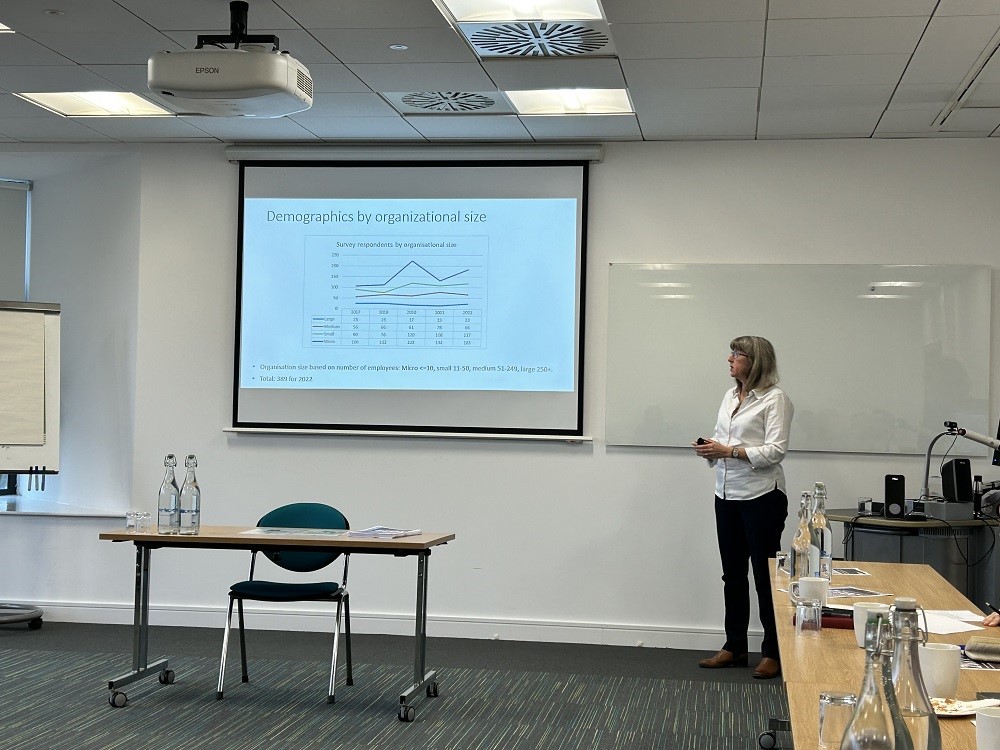Six in 10 East Midlands businesses continue to engage in corporate social responsibility (CSR) activities despite the ongoing cost-of-doing-business crisis, new research shows.
A study by East Midlands Chamber, in partnership with the University of Derby and Loughborough University, found that while there was a slight drop-off in engagement from 66% to 60% of firms in the year to 2022, 42% plan to increase charitable and community activities over the next 12 months – with fewer than 4% expecting a decrease.
When asked to rank the importance of CSR to organisational strategy, it was given an average rating of 5.7 out of 10.
This week, the Chamber hosted a roundtable session involving business leaders to learn why many organisations place importance on CSR and how to support those that don’t currently engage in any activities.
East Midlands Chamber director of policy and external affairs Chris Hobson said: “This research demonstrates the continued importance of being a responsible business, something that many firms are prioritising even in a tough economic environment of cost pressures from all cylinders.
“Responsible businesses are more successful in attracting and retaining employees, winning contracts and tenders, and being recognised as an important part of their community. This ultimately results in more successful businesses.
“We now want to help more businesses to do more CSR engagement, and in a more impactful way, using the insights of this research and discussions with our members.”
Key findings in East Midlands Chamber CSR research
The CSR analysis has been conducted since 2017 as part of the Chamber’s Quarterly Economic Survey.
The latest study took place in November within the Q4 2022 survey, featuring 389 respondents from across Derbyshire, Leicestershire and Nottinghamshire. Key findings included:
· CSR engagement among service-based firms (64%) tends to be higher than among manufacturers (50%)
· There is a correlation between CSR engagement and the size of an organisation – while 83% of large firms are engaged, this decreases for medium (73%), small (66%) and microbusinesses (47%)
· A lack of resources remains the main barrier to greater adoption, cited by 32% of all companies but higher among microbusinesses (35%)
· Other key barriers include not being something an organisation has considered (20%), not part of a strategic business plan (17%), too busy (13%), not the right time (11%) and unsure how to begin (7%)
· The desire to give something back (15%), being the right thing to do (14%), develop links with the community (13%) and staff development (11%) were cited as the main motivations for CSR engagement
· Charitable activities (40%) like corporate fundraising and donations are the most popular types of CSR engagement, followed by environmental activities (27%), community initiatives (23%) and staff volunteering (10%)
· Smaller organisations are more community-focused than their larger peers, which regard CSR as more critical to their strategy
· Despite the slight fall in CSR engagement between 2021 and 2022, virtually all (97%) organisations are looking to maintain, if not increase, their CSR activities in the coming year
The analysis is published in a report titled Corporate social responsibility engagement in the East Midlands, authored by Dr Barbara Tomasella at the University of Derby and Dr Elaine Conway at Loughborough University.
Dr Tomasella said: “This study highlights how organisations in the East Midlands are good advocates for engaging in CSR activities and is a very positive bellwether of the strength of community spirit in the East Midlands.
“Despite barriers to resource availability, many organisations do find the opportunity to invest in CSR, and have a strong sense of wanting to give back and develop their local communities – a commitment that still looks strong in the forthcoming year.”
Dr Conway added: “It’s important we now look to support more firms to join their peers in CSR engagement – not only because of the community benefits but because it makes good business sense – and we will be looking at how we can support this via positive storytelling, toolkits and training.”



